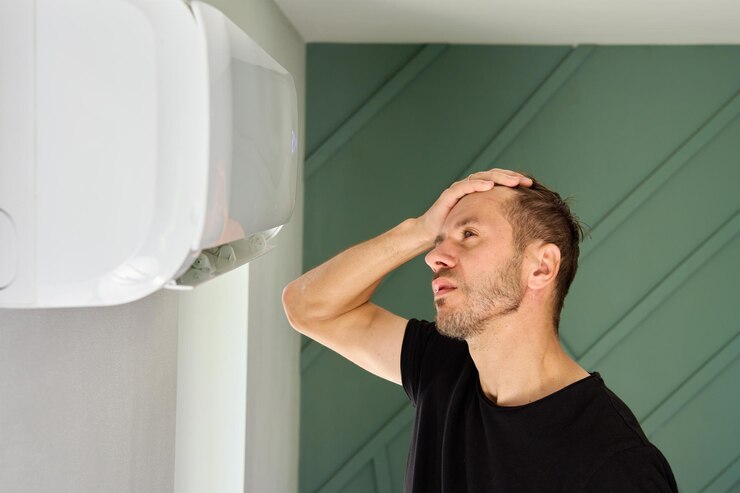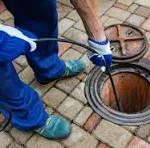Foreword:
Few household appliances are so universal and so commonly overlooked as water heaters. When they’re running well, we hardly pay attention to them; when they break down, however, we receive such notice in the most inconvenient manner.
Being a house owner, tenant, or member of a construction company furnishing water systems, the ability to troubleshoot a water heater saves time, money, and lots of headache. This guide will run you through some of the common water heater troubles, their causes, and solutions.

Understanding Your Water Heater:
Before entering into actual troubleshooting, it is necessary to familiarize yourself with the water heater’s basic types and its components. The three types of heaters found in a majority of homes today are:
- Tank Water Heaters – These have a large hot water reservoir where the water is stored until needed.
- Tankless Water Heaters – Smaller heaters that operate on demand, heating water as it passes through the unit.
- Heat Pump Water Heaters – More energy-efficient options that use a small amount of electricity to move heat from one place to another.
These components serve as the target of investigation in the course of troubleshooting: thermostat, heating element, and pressure relief valve. Also important to check are the age and model of your unit. Older models might have less efficient technology, while the newer units come with smarter features that will require variable handling in troubleshooting.
Common Water Heater Issues and How to Fix Them:
- No Hot Water
One of the most frustrating problems is that of no hot water at the tap. This problem can have any number of causes, depending on the type of water heater.
- Electric Water Heaters: The first thing you want to verify is that the circuit breaker is not tripped. If the breaker is fine, perhaps you’re looking at a thermostat or heating element replacement.
- Gas Water Heaters: Make sure the pilot light is lit. If it is not, light it according to the manufacturers’ specifications. If the flame remains off, then the thermocouple may have gone awry. Look for gas supply issues such as a closed valve.
- Inadequate Hot Water
If your water heater doesn’t seem to produce enough hot water, the cause may be:
- A faulty thermostat.
- Sediment collecting in the tank, reducing heating efficiency.
- A defect-related heating element in electric water heaters.
- Tankless water heaters will struggle if flow-rate demand for water is more than what they can provide.
- Water Takes Too Long to Heat
For both electric and gas models, it could result from a failed heating element, undersized water heater, and sediment buildup. If demand exceeds supply for tankless water heaters, check the insulation around the tank or pipes, which can result in heat loss.
- Discolored Water
Rusty or murky water will typically be the result of corrosion inside the tank. This means the anode rod, which prevents tank corrosion, needs replacement. In some cases, however, discoloration could be due to rusting pipes or excessive minerals in the water supply, requiring treatment solutions.
- Strange Noises
Rumbling or popping sounds are normally due to sediment building up in the tank. This can be dealt with by flushing the tank. Continuous noise, however, might indicate a more serious problem: either a failing heating element or growing pressure within the tank.
- Water Leaks
The leaks could be due to loose connection fittings, a faulty pressure relief valve, or corrosion of the tank. Small leaks might be handled by tightening or replacing connections and valves. If a leak happens to be coming from the tank itself, you’ll probably need to replace it. Also, ensure that the pressure relief valve is functioning correctly to prevent excessive pressure buildup, which could lead to leaks or tank damage.
Troubleshooting Tips for DIY Enthusiasts:
Before starting troubleshooting, follow these precautions:
- Switch Off the Power or Gas Supply: To make sure you do not get injured and are safe, switch the power off in electric heater installations or shut the gas supply in gas ones.
- Allow the tank to cool: Permit the water to cool off if this is a tank model to avoid burns.
- Tools : Have a wrench, screwdriver, multimeter and replacement parts.
Simple do-it-yourself solutions include a tank flush, for thermostats, and gas heaters can be cleaned easily. Always check with the manufacturer manual for guidance. However, if unsure of any of the above steps, consulting a technician is likely to be a good decision to keep you from causing further damages.
When to Call a Professional?
While there are many problems you could probably repair yourself, still there are issues requiring an expert solution. Such include:
- Consistent leaking from joints, although they have been tightened repeatedly.
- Faults related to gas operations, such as a faulty thermocouple or improperly working pilot lights.
- Serious failures in internal components, such as a cracked tank or extensive corrosion.
- Intractable electrical problems, like circuit breakers tripping frequently or wiring issues.
Doing the job with a licensed plumber or technician ensures that it is done safely and correctly. The professionals can also indicate whether repairs or replacement is in fact what is cost-effective.
The Role of Construction Companies in Water Heater Systems:
Building contractors have a big role in ensuring that water heater systems are correctly installed and maintained at ongoing and post-building activities. Other duties include:
- Proper installation: Ensuring that the installations of water heaters meet safety and local regulations. The positioning venting for gas models, and plumbing connection.
- Design of systems: Picking sizes that are correctly sized in terms of unit, relative to the size of the building, and usage needs.
- Routine services: They offer services like flushing tanks, inspecting components, or replacing worn-out spare parts.
- System upgrades: When renovating or new constructions, they are the ones who recommend and install energy-efficient models.
- Addressing Environmental Concerns: The construction companies also assume responsibility for promoting sustainability in the choice of energy-saving or renewable energy-based water heating systems like solar water heaters in their work.
Building construction companies will make the biggest difference in ensuring long-term usability and efficiency of water heating systems.
Pro Tips to Prolong Water Heater Life:
- Flush Your Tank Annually: This improves the efficiency of the water heater and prolongs its life.
- Check the Anode Rod: The anode rod should be inspected and replaced when necessary, usually every 2-3 years, to prevent tank corrosion.
- Set the Thermostat to 120°F: This will conserve energy and lower the risk of scalding.
- Inspect for Leaks Regularly: Catching a small leak is always better than fixing a flooding pipe and too many repairs or replacements.
- Hire Professionals for Annual Checkups: Regular checks, done by a plumber in flower mound or technician, can reduce any unforeseen problems.
- Upgrade when necessary: If you have a unit more than 10 years old and its replacement is realized often, it is time to test-run energy-efficient substitutes.
Conclusion:
Many a time, if, during its functioning, a hot water tank proves to be of very poor service, daily life is troubled; with the proper knowledge and tools, however, quite a few of them are extremely manageable. Most of the diagnostics you do at home should have prepared you to calmly face the torrid terrains of water heating problems. In case you are constructing new buildings or perhaps upgrading water heating systems, construction companies have to do it, as they are pure specialists for instilling durability and efficiency in place.
Using this guide will allow the homeowner to not only save money but also prolong the years of service for the equipment. The next time the water heater gives you trouble, remember, some knowledge could go a long way. If you maintain your equipment well and if quick intervention can be done, then you will never have a hot water problem for years.





Leave a Reply